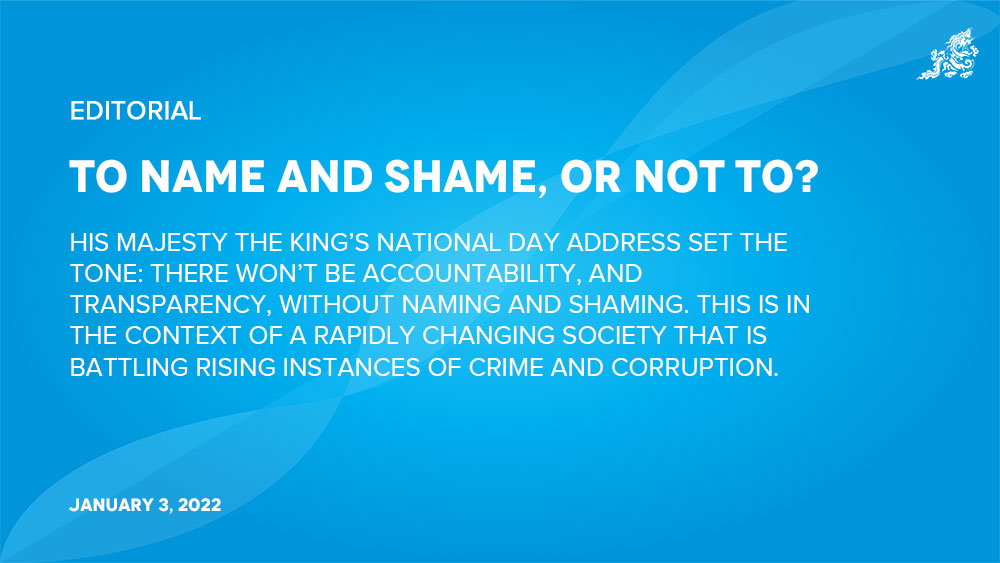His Majesty the King’s national day address set the tone: there won’t be accountability, and transparency, without naming and shaming. This is in the context of a rapidly changing society that is battling rising instances of crime and corruption.
Transparency and accountability lie at the heart of good governance, but how far are we willing to go to instill these redeeming values as the nation’s character?
The question is: how do we start?
For the media, this has always been a serious question. In the one hand, journalists have always argued that “naming and shaming” a serious wrong-doing or behaviour, not only on the part of public officials but also in general, is justified as being in the public interest. On the other, complications arise when the involvement of law and other offices often makes “naming and shaming” skewed towards one group.
When the media’s decision to name and shame, as part of effective deterrence measure is thwarted by pale and timid partners, the very measure becomes a burden on the poor and powerless.
The debate is not about whether media and law-wielding agencies should begin naming and shaming. It is about how consistently and uniformly we can do it. Because the strategy of naming and shaming has both legal and ethical dimensions, the media have always been very sensitive and clear about their decisions to name and shame.
Victims are always protected but not the guilty.
Studies have been conducted which prove that “naming and shaming” indeed contributes towards deterring crimes and other mischiefs. But the media will not wilfully lose sight of the dangers of naming and shaming if the process protects the rich and powerful.
That’s why the media’s approach has always been dictated by sense and logic. So long as deterrence measures such as “naming and shaming” can give rise to two laws for the same people of the same nation, we will continue to protect the victim and name the guilty only when they are convicted by the court of law.
“Naming and shaming”, as a deterrent factor, has its advantages. The question is whether the police, for example, are ready to expose even those who are densely protected by influence and power.


